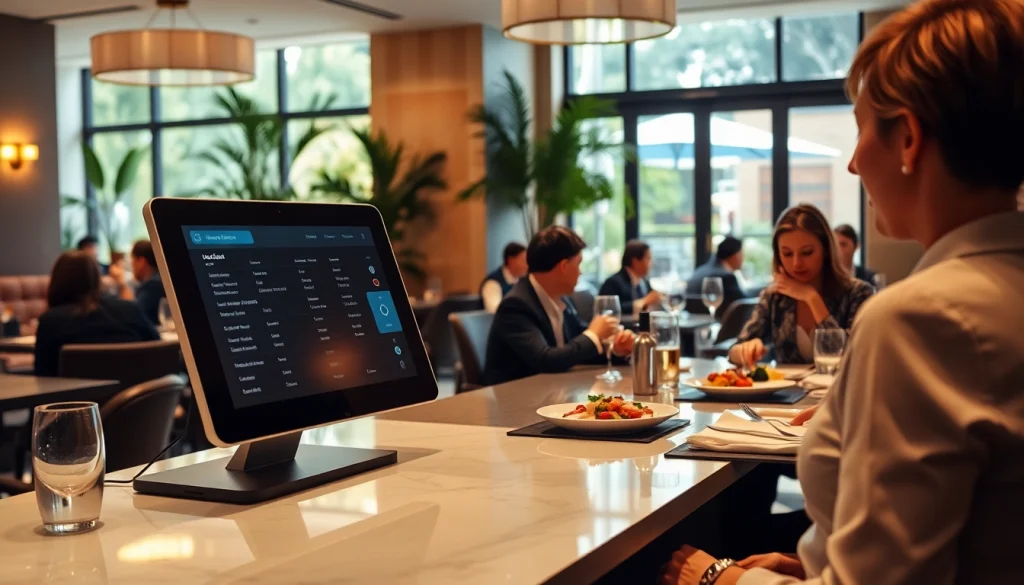Understanding Reservation Services
In an increasingly fast-paced world, reservation services have emerged as an essential tool across multiple industries including hospitality, healthcare, and event planning. These systems facilitate booking processes and provide customers with a seamless way to secure their desired services in advance. This article will delve into various facets of reservation services, highlighting their significance, various types, and essential considerations when choosing the right system for your business.
What Are Reservation Services?
Reservation services refer to systems designed for booking appointments, tables, accommodations, and other services in advance. These services not only streamline the process for end customers but also help businesses manage their capacities efficiently. Different industries utilize reservation systems in diverse ways; for instance, restaurants might focus on seating, while hotels prioritize room availability. Overall, reservation services enhance customer experience by reducing wait times and promoting convenience.
The Role of Reservation Systems in Hospitality
In the hospitality sector, reservation systems play a pivotal role. They enable restaurants, hotels, and travel agencies to optimize their operations, manage customer expectations, and maximize revenue. For instance, hotels can leverage reservation systems to handle room allocations effectively, ensuring that check-ins and check-outs occur smoothly. Similarly, restaurants benefit by managing table turnover and reducing no-show rates, ultimately pushing profitability.
Benefits of Utilizing Reservation Services
- Enhanced Efficiency: Automating appointment bookings minimizes human error and resource mismanagement.
- Customer Convenience: Clients appreciate the ease of booking services online, which can lead to increased satisfaction and loyalty.
- Data Collection: Reservation systems gather valuable customer data, allowing businesses to tailor their services to meet customer preferences.
- Real-Time Updates: Businesses can inform clients of changes or special offers instantaneously, bolstering communication.
Types of Reservation Services
Online vs. Offline Reservation Methods
Reservation services can be primarily divided into online and offline methods. Online systems allow clients to book services through websites or mobile applications, facilitating real-time availability checks and confirmations. In contrast, offline methods may involve traditional phone calls or walk-in appointments. While online methods are increasingly preferred due to convenience, a significant portion of clients may still favor personal interaction, indicating that a hybrid approach often yields the best results.
Restaurant Reservation Systems Explained
Restaurant reservation systems are crucial for establishments that experience high demand. These systems help manage seating effectively by allowing diners to reserve tables in advance. Features commonly associated with these systems include table management, waitlist features, and integrations with customer relationship management (CRM) software to maintain customer loyalty. Platforms such as OpenTable and Resy are prominent examples of restaurant reservation systems, offering features like reservation confirmations, reminders, and customer reviews.
Appointment Scheduling for Service-Based Industries
Industries beyond hospitality, such as healthcare and personal services, also utilize reservation services extensively. For example, medical facilities employ appointment scheduling systems to manage patient bookings, minimizing no-shows and optimizing provider availability. Such systems often feature automated reminders, follow-up notifications, and client portals for rescheduling, ensuring that patients receive timely care while maximizing the efficiency of healthcare providers.
Choosing the Right Reservation Service
Key Features to Look For in Reservation Systems
When selecting a reservation system, businesses should look for features that match their specific operational needs. Essential capabilities can include:
- User-Friendly Interface: Both staff and customers should find the system intuitive.
- Integration Capabilities: It should seamlessly integrate with existing software, such as CRM and billing systems.
- Scalability: The system should adapt to the business’s growth and changing needs.
- Customer Support: Reliable technical support ensures quick resolutions to issues that may arise.
Evaluating User Experience and Customer Reviews
Before committing to a reservation service, prospective users should evaluate other customers’ experiences. Online reviews and testimonials can provide insights into system performance and customer servicel. Additionally, trial versions or demos may offer firsthand experience of how well the software fits into the existing business model.
Comparative Analysis of Popular Reservation Services
There are numerous reservation platforms available, from restaurant-centric solutions like Tock and OpenTable to broader software that covers various industries, such as Bookeo. Conducting a comparative analysis can help businesses identify the best fit. Factors to consider could include cost, features, ease of use, and customer support. Each of these platforms brings unique strengths to the table, making it vital for users to align their preferences with the right service.
Implementing Reservation Services
Step-by-Step Guide to Setting Up a Reservation System
Implementing a reservation system requires thoughtful planning and execution. Here is a basic step-by-step guide:
- Assess Your Needs: Define what you need in a reservation service based on your specific business requirements.
- Choose a System: Based on your evaluation criteria, select the reservation system that best meets your needs.
- Setup: Configure the system, including inputting data such as services offered and availability.
- Training: Train staff on how to effectively use the system, emphasizing the importance of customer interaction.
- Launch: Go live with the new system, ensuring that you have communication in place to inform customers of the changes.
Integrating Reservation Services with Your Business
The successful integration of a reservation service into a business involves aligning it with current operational protocols. It may also entail adjusting service offerings based on real-time data gathered through the reservation system. Ensuring that staff is well-versed in using the system will facilitate a seamless transition and create an efficient booking process.
Training Staff for Effective Customer Interaction
Training your staff on how to leverage the reservation system correctly is essential for delivering excellent customer service. Staff should understand all functionalities of the system, including handling bookings, addressing client inquiries, and managing any issues that may arise. Emphasizing customer communication can heighten the effectiveness of the process, fostering positive experiences and long-term customer loyalty.
Measuring Success of Reservation Services
Key Performance Indicators for Reservation Systems
To ascertain the effectiveness of reservation services, businesses should track various Key Performance Indicators (KPIs). Such metrics may include:
- Booking Efficiency: Monitor the time taken to complete bookings and analyze trends over time.
- Customer Satisfaction Scores: Collect feedback regularly to evaluate the customer experience.
- Cancellation and No-Show Rates: Measure how often clients cancel or fail to show up, aiming to reduce these rates.
- Revenue Growth: Analyze how reservation systems impact overall revenue through increased bookings.
Customer Feedback and Continuous Improvement
Regularly soliciting customer feedback can provide valuable insights that allow businesses to refine their reservation services. Engaging with customers through surveys or social media channels can highlight areas for improvement, leading to continuous enhancements in offerings and operational efficiency.
Case Studies: Successful Implementation of Reservation Services
Numerous businesses have significantly benefitted from implementing reservation services. One notable case is a popular restaurant that integrated a reservation system to streamline their seating process, reducing table turnover time and enhancing customer satisfaction. By analyzing booking patterns and customer preferences, they could optimize staff scheduling and menu offerings. As a result, they reported a noticeable increase in patronage and revenues, demonstrating the positive impact of a well-implemented reservation system.





